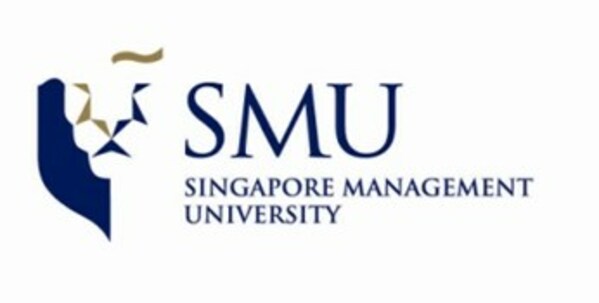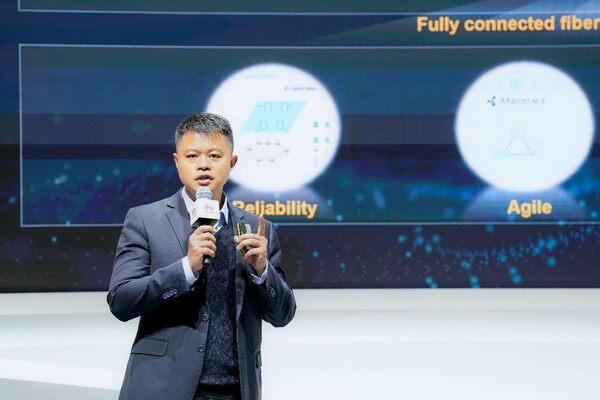 |
SMU's rise up the CSRankings reinforces the past rankings that have put SMU on the world map for software engineering research
SINGAPORE, Oct. 3, 2024 /PRNewswire/ -- Singapore Management University (SMU) has risen to #2 in Software Engineering for 2023 – up two places from the previous year in the influential CSRankings. CSRankings is a metrics-based ranking of top Computer Science (CS) institutions around the world, which evaluates academics by their publications at top research conferences in a CS field. It is a key resource for graduate students globally to evaluate schools and find active researchers in Computer Science.
SMU is the only university from Singapore to be ranked among the top 10 in CSRankings 2023 list, and it is home to the country's only research centre dedicated to Software Engineering: the Centre for Research in Intelligent Software Engineering (RISE). This achievement reflects SMU's world-class research capabilities in Software Engineering.
Nanjing University holds the top spot in the CSRankings 2023 list, followed by other notable institutions, including Sun Yat-Sen University (#3), the University of Illinois at Urbana-Champaign (#4), the Chinese Academy of Sciences and Huazhong University of Science and Technology (both tied at #5), Carnegie Mellon University (#7), Fudan University and Peking University (tied at #7), and Concordia University (#10).
This latest ranking reinforces many past rankings that put SMU on the world map for software engineering research. For example, the University of Texas at Dallas (UT Dallas) study, 'A bibliometric assessment of software engineering themes, scholars and institutions (2013–2020)' (Volume 180, Oct 2021), which considered publications in high-quality journals and conferences, puts SMU #5 worldwide in the league of the University of California (#1), Carnegie Mellon University (#2), Nanjing University (#3) and Microsoft Research (#4).
Significance of CSRankings
CSRankings stands out among popular rankings as it focuses on specialised fields within Computer Science. It is regularly updated and based on publications in top-tier conferences, with metrics weighted by the number of authors. This transparency ensures that the rankings reflect the real impact of research within each field. In Computer Science, top-tier conferences are highly competitive, with low acceptance rates, and the full research papers presented are often of similar length to journal publications.
SMU Software Engineering faculty members published many highly innovative works at the 45th ACM/IEEE International Conference on Software Engineering (ICSE 2023) and 31st ACM Joint European Software Engineering Conference and Symposium on the Foundations of Software Engineering (ESEC/FSE 2023) – which are the two key Software Engineering conferences tracked by CSRankings. Their papers report novel automated solutions and deep insights realised from software engineering research at SMU. The research covers many topics ranging from software development, software testing, software security, software architecture, and developer collaboration. The solutions addressed different kinds of software systems ranging from conventional software to industrial control systems, video games, and deep learning systems.
Engaging in world-class research
Professor David Lo, the OUB Chair Professor of Computer Science and Director of the Centre of Research in Intelligent Software Engineering (RISE) said: "We are very happy to contribute to the advancement of software engineering research and practice, and excited to share our findings with the world via our research papers and presentations at key conferences. This excellent ranking outcome is only possible with the hard work of everyone at RISE, the strong support from SMU and its School of Computing and Information Systems, and the collaborations with our partners from universities and companies in Singapore, China, Japan, Australia, Luxembourg, the United States, and Canada."
SMU's Vice Provost (Research) Prof Archan Misra said that this improved ranking shows "the rigour, relevance and global reputation of our research across a wide range of software engineering topics."
"My software engineering colleagues, as part of RISE," he noted, "have engaged in world-class academic research with excellent publication records, resulting in several distinguished influential paper awards and recognised through many leadership roles in the software engineering academic community."
"Equally importantly, via translational projects executed in partnership with public agencies, this research generates significant societal impact and contributes to the security of Singapore's digital applications and services," he added. "Their work is instrumental in establishing the university's research strengths at the intersection of social sciences, management and computing."
About Singapore Management University
Established in 2000, Singapore Management University (SMU) is recognised for its disciplinary and multi-disciplinary research that addresses issues of global relevance, impacting business, government, and society. Its distinctive education, incorporating innovative experiential learning, aims to nurture global citizens, entrepreneurs and change agents. With more than 13,000 students, SMU offers a wide range of bachelors, masters and PhD degree programmes in the disciplinary areas associated with six of its eight schools - Accountancy, Business, Computing, Economics, Law and Social Sciences. Its seventh school, the SMU College of Integrative Studies, offers degree programmes in deep, integrative interdisciplinary education. The College of Graduate Research Studies, SMU's eighth school, enhances integration and interdisciplinarity across the various SMU postgraduate research programmes that will enable students to gain a holistic learning experience and well-grounded approach to their research. SMU also offers a growing number of executive development and continuing education programmes. Through its city campus, SMU focuses on making meaningful impact on Singapore and beyond through its partnerships with industry, policy makers and academic institutions. https://www.smu.edu.sg/










